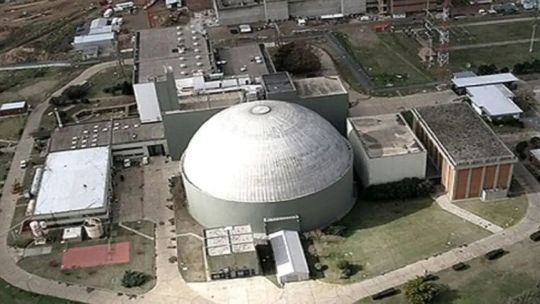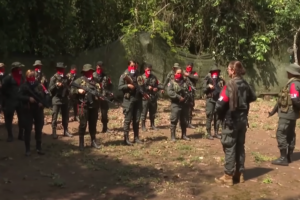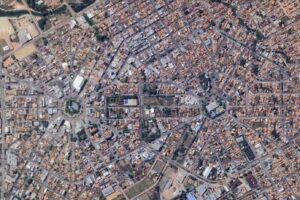
Argentina’s government is kicking off the partial privatisation of state-owned Nucleoeléctrica Argentina SA, operator of the country’s three nuclear power plants: Atucha I, Atucha II and Embalse.
The plan, announced Tuesday, consists of “the sale of 44 percent of the shares in a block through a national and international public tender,” said Presidential Spokesperson Manuel Adorni. “Five percent will go to an employee ownership programme, with the state retaining 51 percent.”
Five per cent of the share capital “will be allocated to a [employee] shared ownership programme, while the remaining 51 percent will remain in the hands of the national government,” he added.
By keeping majority control, the government in theory preserves oversight of strategic decisions. Nevertheless, the political intent is clear: the door is being opened to foreign nuclear companies and private investors.
Nucleoeléctrica Argentina SA, otherwise known as NA-SA, operates plants with a total installed capacity of 1,763 MW, covering 7.35 percent of Argentina’s electricity demand. The company turned a profit of 17.2 billion pesos in the first quarter of 2025, employs some 3,100 highly qualified staff and serves as a hub for the local nuclear industry.
President Javier Milei’s government included the firm on a list of public companies to be privatised in a mega-reform law approved by Congress in 2024.
Milei, a self-described “anarcho-capitalist” head of state, vowed to sell-off struggling national firms while campaigning for office.
Last July, his government announced the start of the privatisation of state waterworks firm Aysa (Agua y Saneamientos Argentinos SA), which supplies water and sanitation to some 11 million people in Buenos Aires and its surrounding.
It is not the first time that a national administration has attempted to privatise parts of the nuclear industry: in the 1990s, Carlos Menem tried to sell Nucleoeléctrica, but union resistance and a lack of investor interest scuttled the plan.
Preparations – and concerns
Preparation for the privatisation kick-off has been hectic, according to reports.
NA-SA President Demián Reidel led a shake-up of senior management, with figures from purchasing, legal and IT leaving. The move was described as “clearing the ground for incoming investment.”
Reidel, who also heads the Argentine Nuclear Council and recently stepped down as an adviser to the president, has been central to Milei’s nuclear strategy.
He has advanced plans for a domestically designed 300MW modular reactor, alongside future projects involving uranium exports and data-centre power supply. Argentina has 34,000 tonnes of uranium reserves, compared with an annual domestic demand of only 220 tonnes.
Milei’s administration has signed an agreement with the United States covering uranium supply, part of its effort to consolidate a strategic alliance with Washington on nuclear policy.
That shift could have costs. Analysts warn it may undermine other projects emblematic of technological self-sufficiency, such as the CAREM modular reactor in Zárate and long-discussed fourth and fifth nuclear plants.
“All state companies are subject to an irreversible privatisation process,” Adorni declared this week. Addressing the government’s nuclear plans, he said the aim is to “promote private investment with a view to achieving the construction of the first modular reactor in Argentina, the extension of our plants’ life and to drive uranium mining, among other matters.”
The scientific community remains sceptical. Members of the National Atomic Energy Commission (CNEA) warned in a statement: “Nucleoeléctrica is a company of the Argentine people, running a surplus and strategic. Nuclear technology is not a privilege: it is a state policy driving the industry and improving quality of life.”
– TIMES/PERFIL/AFP





